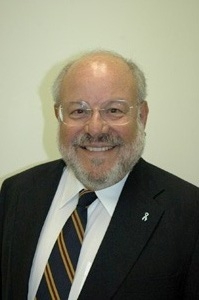What an ordeal the people of a good part of the United States have been through because of Hurricane Sandy--and many are still going through! As I write this on Sunday, November 11, electricity is still out to a huge number of homes and businesses on Long Island, in New York City and New Jersey as a result of Hurricane Sandy.
Long Island has been especially hard-hit. And the Long Island Power Authority is being blasted. There were demonstrations yesterday of outraged Long Islanders protesting LIPA's Sandy performance. At one, in Hicksville, a placard read: "Shame on LIPA. Shame on its Board of Directors. No Lights, No Heat, No End in Sight." Another declared: "We Want Power Now!"
Steve Bellone, county executive of Suffolk which comprises the eastern 60 percent of Long Island, held a press conference yesterday to announce that Suffolk "has cut ties with LIPA headquarters and has begun directing local assets to expedite restoring power." Bellone said that "people are desperate out there. After two weeks they need their power restored."
Other public officials lambasting LIPA were calling for greatly expanded federal assistance in view of LIPA's failure to restore power in view of LIPA's failure to restore power to all of Long Island since the hurricane hit on October 29. Nassau County Executive Edward Mangano said yesterday that LIPA "cannot continue under its present structure." Earlier in the week, he proposed that the U.S. military and Department of Energy take over the "managerial structure" of LIPA during the restoration of power.
What, at this stage, might be considered some of the "lessons learned" from "Frankenstorm" Sandy--in addition to how Long Islanders can't count on LIPA to get power back fully even more than 10 days after a major storm, a LIPA record?
Beyond everything else, Sandy has provided a big lesson on the awesome power of nature in its fury. In this regard, it has demonstrated the folly of spending billions of taxpayer dollars to dump sand along ocean beaches to supposedly "fortify" them, so-called "beach replenishment." In one fell swoop, sand dumped on the affected coastline in these Army Corps of Engineers' endeavors up and down the Mid-Atlantic has been washed away.
Yesterday, the Ponquogue Bridge in Hampton Bays in Suffolk was finally opened and I was able to look at some Sandy impacts along this barrier beach fronting Hampton Bays and extending toward Westhampton Beach. The highway that runs along the barrier beach, Dune Road, was still closed. Dune Road in many spots was washed over. But viewing what could be seen from the ocean beach just south of the Ponquogue Bridge, one could see the shoreline as far as the eye could see in either direction was now flat all th way to the water. Once it curved upward towards the line of grass-covered dunes. Not any longer. Now it's low and flat.
Then there's the important connection to climate change and global warming.
Bloomberg Businessweek in its cover story on Sandy ran a photo of the storm in its full wrath with the headline, "It's Global Warming, Stupid."
Sandy brought climate change and global warming home violently.
Bellone was asked at a press conference three days after the hurricane struck whether, in view of global warming and the greater frequency of major storms, Suffolk County needs to change land-use policies. "I think what you say is correct. It's something to think about when power is restored," he responded to the reporter. It is, indeed, something to "think about"--and, more importantly, nations taking action to significantly reduce the burning of fossil fuels which is heating up this planet.
As Dr. Michio Kaku, professor of physics at City University of New York, commented on his blog: " Hurricane Sandy's the hurricane from hell. It broke all records"Is this related to global warming? First, there is no smoking gun, no conclusive evidence"However, the signs are not good. Second, global warming is heating up the"waters, and warm water is the basic energy source driving a hurricane".So global warming is actually the weather on steroids. This is consistent with the 100 year floods, 100 year forest fires, 100 year droughts that we seem to have every few years. So is this the new normal? We cannot say with certainty, but a case can be made that this wacky weather is, in part, driven by global warming."
And, yes, land-use policies on the coast need to change--especially the use of tax dollars "encouraging people to live in harm's way," as the R Street Institute, a Washington, D.C.-based think tank, put it in a statement.
"The storm should heighten awareness about the dangers of federal policies that encourage development in risk-prone areas," said R Street. "Key among these is the National Flood Insurance Program which is expected to pick up as much as half of the $20 billion in economic losses Sandy is projected to produce. The 44-year-old NFIP is the federal government's second largest fiscal liability, behind only Social Security, with taxpayers on the hook for the program's $1.25 trillion of coverage."
Private insurance companies are reluctant to insure houses built on shifting sands in the teeth of the ocean, so the U.S. government--under enormous pressure of the beachfront homeowner lobby--has filled in with our tax dollars.
Then there's the Army Corps of Engineers and beachfront homeowners forever pushing for sand-dumping or "beach replenishment." As Eli Lehrer, R Street's president, said in a media conference call in which I participated, "I would say the ideal federal percentage for "beach replenishment' is zero."
(Note: You can view every article as one long page if you sign up as an Advocate Member, or higher).





